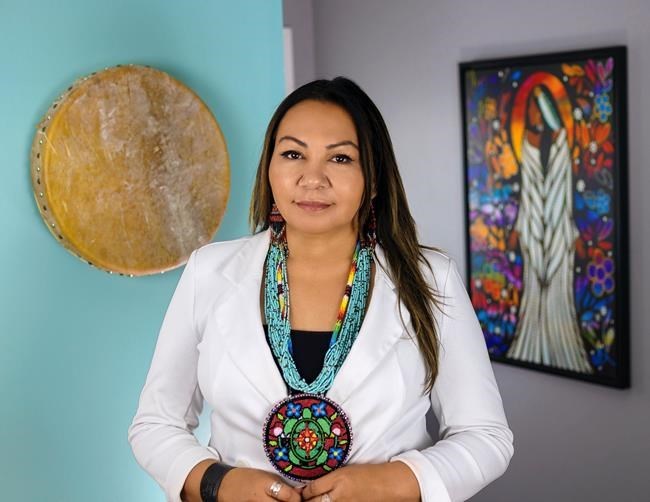OTTAWA — The head of an international organization Ottawa hired to give advice on identifying possible remains in unmarked graves at former residential schools said Wednesday that its coming work should be given a chance.
The federal government's decision to hire the Netherlands-based International Commission on Missing Persons to engage with Indigenous communities has been met with concerns, including that the $2 million contract appears to duplicate work that Indigenous experts were already taking on.
Kathryne Bomberger, the director-general of the organization, says it is just starting out and plans to adjust the timeline laid out in a technical agreement that was recently made public, since it currently calls for a final report by June.¬Ý
"This has taken a long, long time to even get to this point," she said in an interview. "We need to start working. ‚Ķ We need to give this a chance."¬Ý
Bomberger said the group was first contacted by members of a Cree community two years ago, and it also spoke with northern Manitoba NDP MP Niki Ashton, who called for the commission's involvement.¬Ý
From there, she said the organization worked through the foreign service and ultimately submitted a proposal to Ottawa.¬Ý
Bomberger said Wednesday that the commission relies on government funding to be able to do its work, and it plans to travel to Canada with a team of experts on DNA, excavations and data systems.¬Ý
Their intention is to provide communities with options on how to identify the possible remains of Indigenous children who are believed to be buried in unmarked gravesites, and compile what they hear into a report to federal officials, she said.
"I'm optimistic that we can provide options that maybe have not really been thought about," she added.¬Ý
Asked specifically if the commission could move beyond consultation into providing technical work sometime this year, Bomberger said "it's not out of the question," if someone wanted to provide a DNA sample. However, she said, the work ahead will be complicated.¬Ý
Kimberly Murray, whom the federal government appointed last year to serve as an independent officer providing advice on unmarked graves and assisting communities, says she is concerned about the fact the commission is not Indigenous led. She also worries about Ottawa's level of involvement in the upcoming work.¬Ý
Murray, who is a member of the Kahnesatake Mohawk Nation, said an agreement published last week shows that federal officials will be able to provide input and make edits to drafts.¬Ý
"Canada runs the show," she said. "Why are they the middleman? Like they're this massive middle person in this whole process."
Sheila North, a Cree leader in Manitoba who the commission says is assisting as a program manager, says its work has been called for by several communities.¬Ý
North said that while there may be a "perceived conflict of interest" stemming from the federal government's role in the arrangement and the fact that it funded the church-run residential school system, she said the commission's work will be independent "even though it might look like that optically."¬Ý
"The funds to do the work had to come from somewhere," she said.¬Ý
North, who said she views herself as someone who will act as a helper to communities, said she was brought on to ensure the work was informed by Indigenous knowledge and protocol.
That was among the concerns that others, including the National Centre for Truth and Reconciliation raised about the agreement.
"I am a Cree person. I am a former leader, and I understand the landscape of Canada and the sensitivities, but also the outcries from our communities," she said.
North said she plans to reach out to both the centre and Murray's office. She said there is a willingness to amend the agreement.¬Ý
Murray said she has raised her concerns directly with Crown-Indigenous Relations Minister Marc Miller and Justice Minister David Lametti.¬Ý
She said she told them that if she and other experts had been consulted, including those on the National Advisory Committee on Residential Schools Missing Children and Unmarked Burials, the current situation could have been avoided.¬Ý
"I guess my question will be: 'What is Canada going to do when they have a report from the ICMP that says one thing, and a report from me that says another?'" she said.
"They've just created confusion."
This report by The Canadian Press was first published Feb. 22, 2023.
Stephanie Taylor, The Canadian Press




